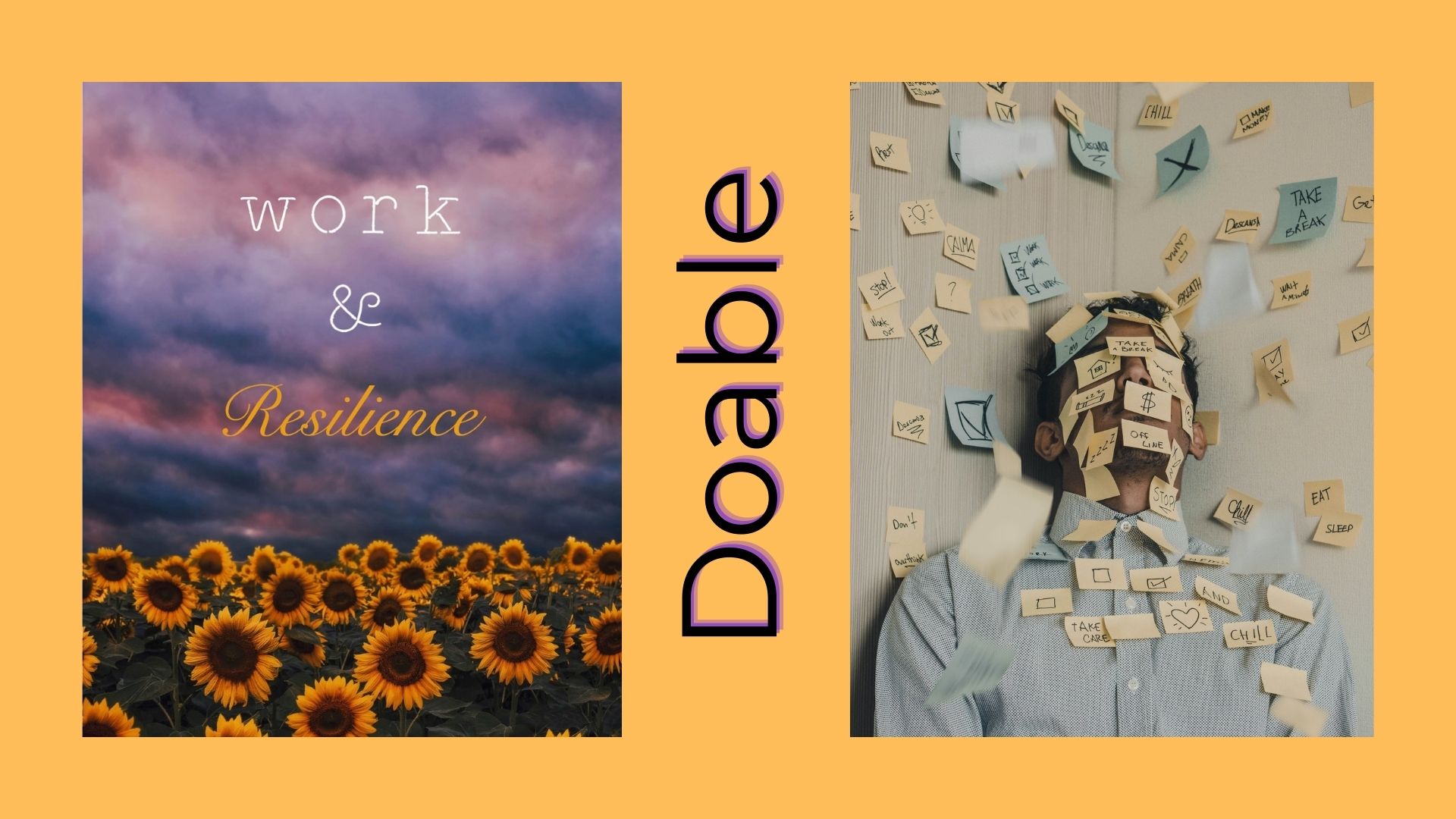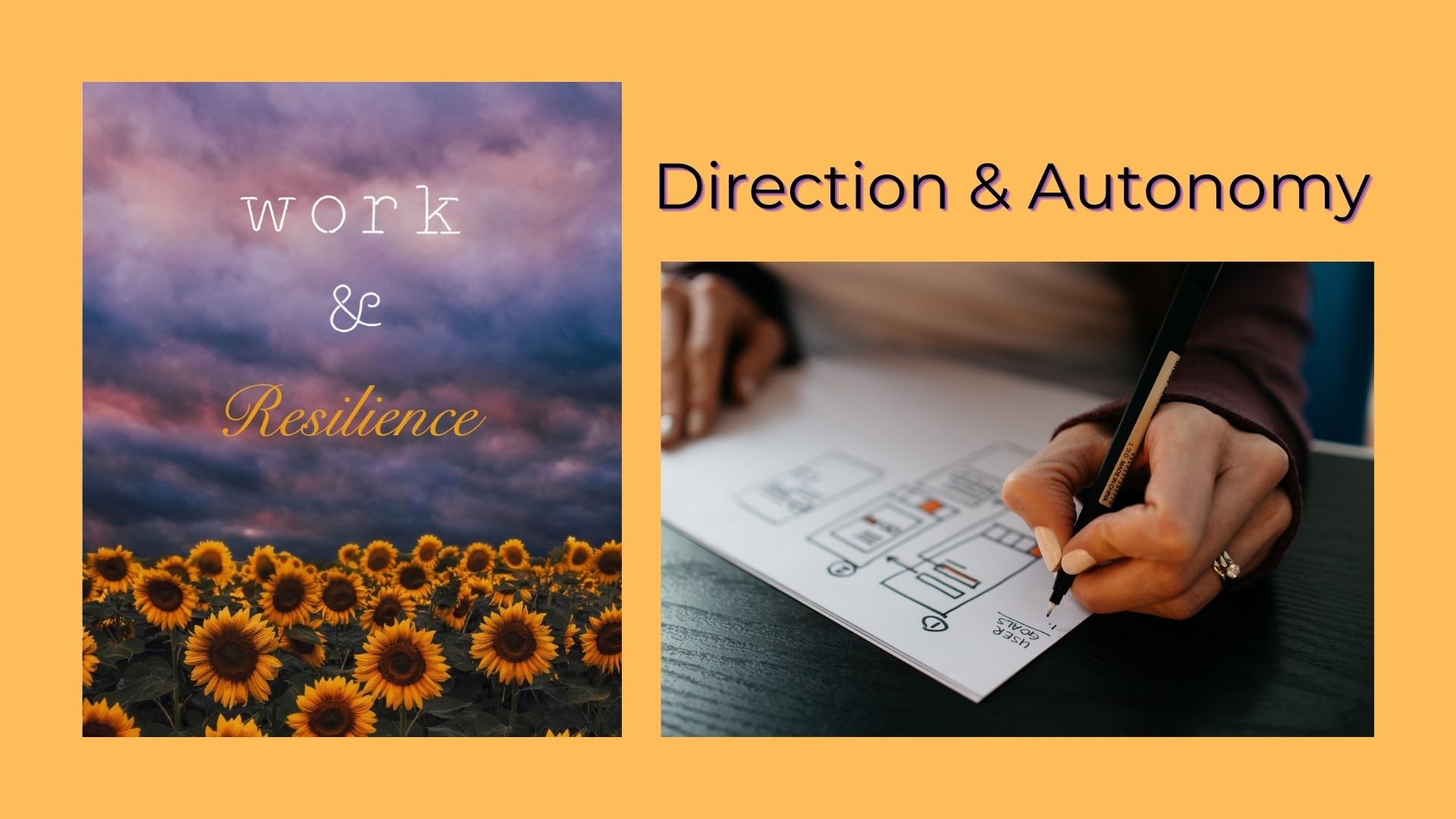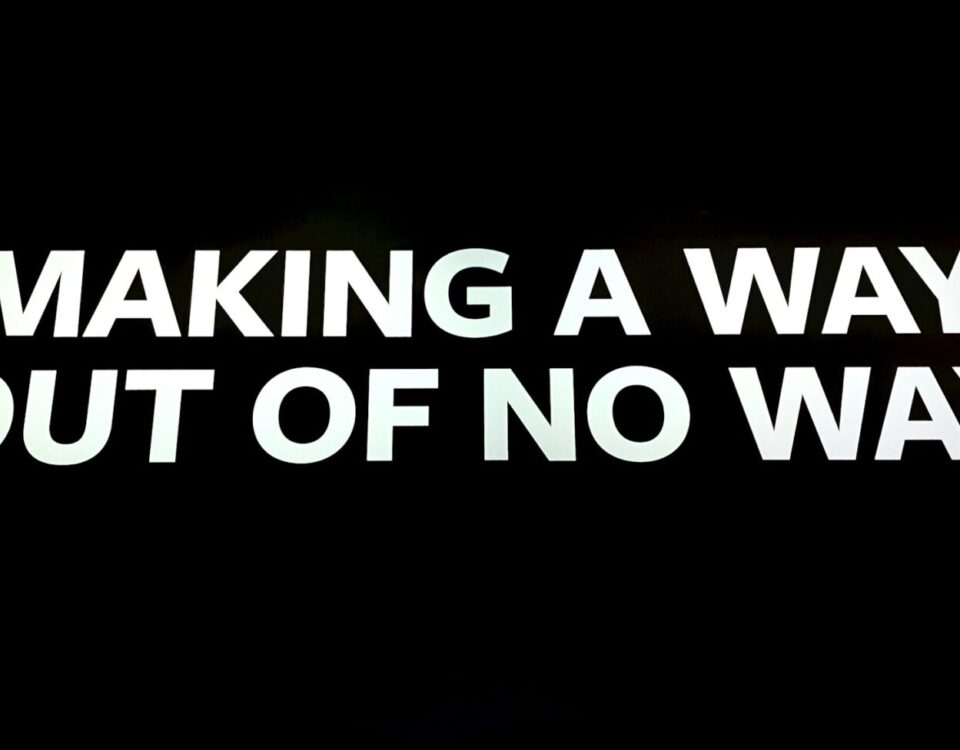
Work and Resilience: Doable
May 11, 2022
Work and Resilience: Direction & Autonomy
June 1, 2022This post is the third in a series on how your work, paid or unpaid, affects your resilience. Previous posts include: “Work and Resilience” and “Doable.”
Does your work provide positive connections?
Resilience is not a solo sport. Coping with difficult times is easier with the support of others. Knowing that others care encourages you to keep trying. On the flip side, loneliness has been identified as a public health threat. People who have high-quality social relationships are reported to live longer, healthier lives. Healthy connections support learning, meaning, and creativity – all ways to boost resilience.
These positive connections can come from colleagues, supervisors, and even clients. There is a human need to be acknowledged and appreciated as you are. How has working together with others helped you in life?
In what way are the connections in your job positive or draining? Does your job provide mutual respect, shared purpose, and a sense of camaraderie?
Mutual Respect
Do people at work speak to you respectfully, listen to your input, and generally treat you like a professional? In other words, do they build your sense of value as a human being?
Example: I was hired into a job where my co-workers had championed a good friend of theirs to get the job. I was disliked before I even arrived. It was made clear that I was not wanted. For a while I thought I was doing something wrong and I tried to get people to like me. Once I learned the back story, I tried to reason with them because I liked the job itself. Over time I realized it was not me, the constant harassment was too much, and I put in my notice.
Whether it is co-workers, a supervisor who yells, or clients who are hostile, dealing with constant disrespect takes a toll. In a job where clients may be difficult, it is all the more important that supervisors and co-workers are supportive and understanding. Organizations may have policies about respect but they are pointless if this isn’t embedded in work culture. This is particularly important for people who face oppression on an ongoing basis. Not being treated with respect is exhausting and wears on your self-esteem.
Shared Purpose
Do you and your colleagues share a sense of purpose?
Example: In a planning meeting for a summer rec program, several people were brainstorming ways for the campers to have fun and learn some social emotional skills. Two senior members of the team joined the meeting, dismissed the list of ideas and said, “just make sure they go back home with the correct parents.” All further ideas about skill building was met with, “we’ll just do what we did last year.”
Without a shared goal people either work at cross purposes to one another or they fall back on “this is how we have always done it” neither of which promotes cooperation. When there is a common purpose, you can work together to meet the goals. Hard jobs are easier when people can focus on the goal and strive together. There are going to be days when your goal at work is to go home. But if this becomes the only goal for everyone work becomes drudgery. Working together to solve problems builds community and increases creativity, both of which enhance resilience.
Sense of Comaraderie
(Camaraderie? This was the best word I could find.)
Does your work group notice each person’s humanity?
Example: There is a tradition on Friday that the boss brings in donuts. A new team member has shared that they can’t eat them and are met with “sorry” (shrug). One Friday a small box appears next to the donuts with the new person’s name on it. The secretary comments, “my sister can’t eat that either, she said she likes these so I thought I would bring it in to see if you would like it.” A little thing that is a big deal.
Camaraderie – a spirit of warmth and inclusiveness. People at work don’t need to be best friends, but it makes a huge difference when they notice your humanity. It is super important that this inclusion is extended to all people. A clique is the opposite of this, when people are supportive of their inner circle and everyone else is “not in.” Feeling left out interferes with communication and cooperation. The temptation is to shrug and say, “it doesn’t matter” but that is false. Loneliness can be most painful when felt while with other people. This stifles the impulse to collaborate and ask for help, key tasks in staying resilient.
Being resilient is enhanced when we have positive connections in all areas of life. When your job provides healthy connections, harder jobs are easier, creativity is encouraged, and others help you see your own self-worth. How are connections at your job?
How else does work add to or detract from your resilience?
We will explore other topics in the next few posts. Be sure to sign up for our email here so that you receive the whole series. We will also be sending an invitation to join a live Zoom conversation about your insights.
Peace,
Laura A. Gaines





